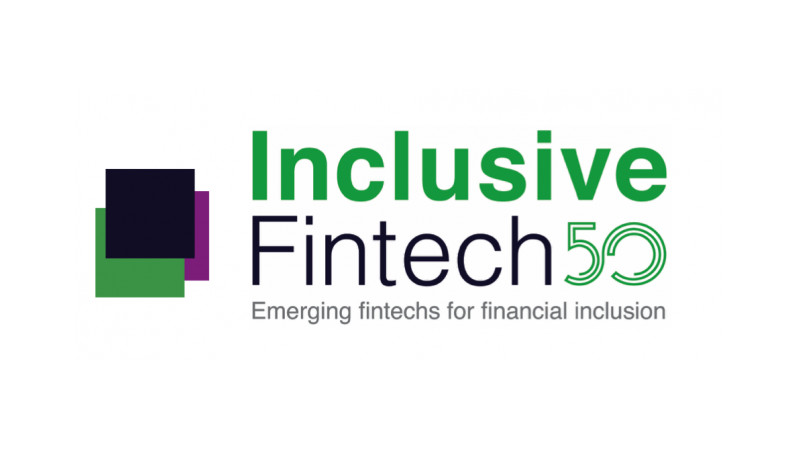Have you ever wondered how much easier travel has become, thanks to the digital innovations shaping our world? Exploring new destinations used to mean…
Sub-Sahara Africa is top market for those that made Inclusive Fintech 50 list

Sub-Sahara Africa is the favoured region for top fintech companies aimed at improving financial inclusion to operate in, if the names of those listed as part of the Inclusive Fintech 50 initiative is anything to go by.
The initiative — run by MetLife Foundation, Visa, non-profit Accion and World Bank member IFC— aims to recognise the top early-stage fintechs that contribute to financial inclusion around the world.
Fintechs focused on sub-Saharan Africa account for 16, or a third of the 50 companies selected for the list, followed by 20% who say South Asia is their exclusive market.
Those that list North America, East Asia and the Pacific region as their exclusive market, each account for eight percent of those selected, while the those focused on Latin America, the Caribbean and the Middle East and North Africa (MENA) region make up the remainder.
The Inclusive Fintech 50 winners were selected from 400 eligible applicants
In a statement yesterday (17 June), MetLife Foundation said the initiative’s 50 firms were selected from 400 eligible applicants.
MetLife Foundation added that those selected for the list demonstrate the power of financial technology to expand access, usage, and quality of financial services in advanced and emerging markets.
About 40% of the 50 companies provide credit products to under-served segments including small businesses, this while 25% offer infrastructure solutions like biometrics software that enable financial institutions to expand access to previously excluded groups.
Fintech startups offering insurance; payments and remittances services; and savings as well as personal financial management tools each made up 15% of the 50.
MetLife pointed out that nearly 70% of those that made the final 50 are pre-Series A and already exhibit strong product-market fit and traction, as demonstrated by their combined 8 million customers.
Of the 50 companies , a third operate exclusively in sub-Saharan Africa. They are:
- Acre Africa (Kenya, insurance): Acre Africa links smallholder farmers in Kenya, Rwanda and Tanzania to crop, livestock and index insurance products to protect against unpredictable weather.
- Apollo Agriculture (Kenya, credit): Apollo Agriculture uses machine learning, remote imaging via satellite, and mobile money to provide proven agricultural tools and financing to African farmers in a low-cost and highly-scalable way.
- Awamo (Germany, infrastructure): Awamo addresses the high operational costs of micro-finance institutions through awamo360, a software-as-a-service core banking product deployed in Kenya and Uganda. The company is currently running a pilot in Tanzania.
- E-Settlement (Nigeria, infrastructure): E-Settlement’s agent banking platform, PayCentre, aims to bridge the last mile connectivity gap in Nigeria. The network offers services including cash withdrawal, cash deposit, fund transfers, bill payments and more.
- Hello Paisa (SA, payments and remittances): Hello Paisa is a digital international money transfer operator that aims to drive down the cost of remittances and provide a safe platform that is accessible to those who need it most.
- Inclusivity Solutions (SA, insurance): Inclusivity Solutions designs, builds, and operates digital insurance solutions on top of the rails of mobile network operators, banks, microfinance institutions and other distribution partners in Cotê d’Ivoire, Kenya and Rwanda.
- Kwara (Germany, Kenya, infrastructure): Kwara is a digital banking platform for lenders such as credit unions or savings and credit cooperatives in Kenya.
- MaTontine (Senegal, infrastructure): MaTontine automates and digitises tontines in Senegal — a unique savings group model — and then harvests the behavioural data of individual members in order to risk, price and offer services like micro-insurance or micro-credit.
- Numida (Uganda, infrastructure): Numida provides a suite of business management tools that allow small businesses in Uganda to manage cash flow, inventory, and employees.
- OZÉ (Ghana, infrastructure): OZÉ equips small business owners to make data-driven decisions to improve their performance and access capital needed to scale.
- PEG Africa (Mauritius, credit): PEG Africa is a leader in financing and deploying solar to consumers and small businesses in West Africa, with operations in Ghana, Ivory Coast and Senegal.
- People’s Pension Trust (Ghana, savings and personal financial management): People’s Pension Trust is licensed to provide trustee services for the Ghanaian workforce, particularly those in the informal sector.
- Pezesha (Kenya, credit): Pezesha addresses the limited coverage of credit bureaus in Kenya by offering “credit-decisioning-as-a-service” for financial institutions through its marketplace platform
- Pula (Kenya, insurance): Pula bundles affordable area-yield index insurance with tailored advice for smallholder farmers in Ethiopia, Kenya, Malawi, Nigeria, Rwanda, Uganda, and Zambia.
- Riby (Nigeria, infrastructure): Riby automates and digitises the financial activities of co-operatives, associations and trade groups, with features including co-operative member management — and an accompanying mobile or web application designed for the end-user — loan requests, loan originations and savings, and contributions tracking.
- Tulaa (Kenya, credit): Tulaa provides smallholder farmers in Kenya with agricultural inputs on credit and brokers the sale of their crops at harvest time through a digital marketplace.
South African insurtech Click2Sure — a full-stack digital platform through which retailers, service providers, distributors and brokers can offer specialised insurance products to customers at the point-of-sale — is also among the 50, having been included in the category of startups that operate across multiple regions.
Mosabi, a US company which uses free phone-based e-learning to help citizens increase their income and link to digital financial services, also operate across multiple regions. According to a tweet by its co-founder Chris Czerwonka to Ventureburn, the company started in Ghana and currently serves Senegal, Sierra Leone and Kenya.
Another UK-based payments and remittances startup Dopay, which provides employers a unified solution to digitise payroll in Egypt, was also selected as a winner in the Middle East and North Africa (MENA) region.
Visa head of social impact Marianne Mwaniki, commenting in the same statement, said existing research indicates that investment capital has largely overlooked early-stage and inclusive fintechs in several markets.
“This group of winners makes clear that there are high-potential startups with viable products and business models and they’re ready for investment,” said Mwaniki.
MetLife Foundation director of financial health and inclusion Sarah Willis, also commenting in the same statement, said Inclusive Fintech 50 demonstrates that there are lesser-known fintechs able to reach under-served populations with financial products.
“We want to support startups that are addressing the holistic needs of these target segments with the ultimate goal of improving their financial health,” said Willis.
Read more: Inclusive Fintech 50 initiative launched to identify top financial inclusion startups
Editor’s note (19 June 2019): We forgot to include Mosabi as another fintech on the Inclusive Fintech 50 list. The US company uses free phone-based e-learning to help citizens increase their income and link to digital financial services. It operates across multiple regions.
According to a tweet by its co-founder Chris Czerwonka to Ventureburn, the company started in Ghana and currently serves Senegal, Sierra Leone and Kenya.

